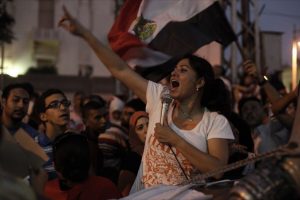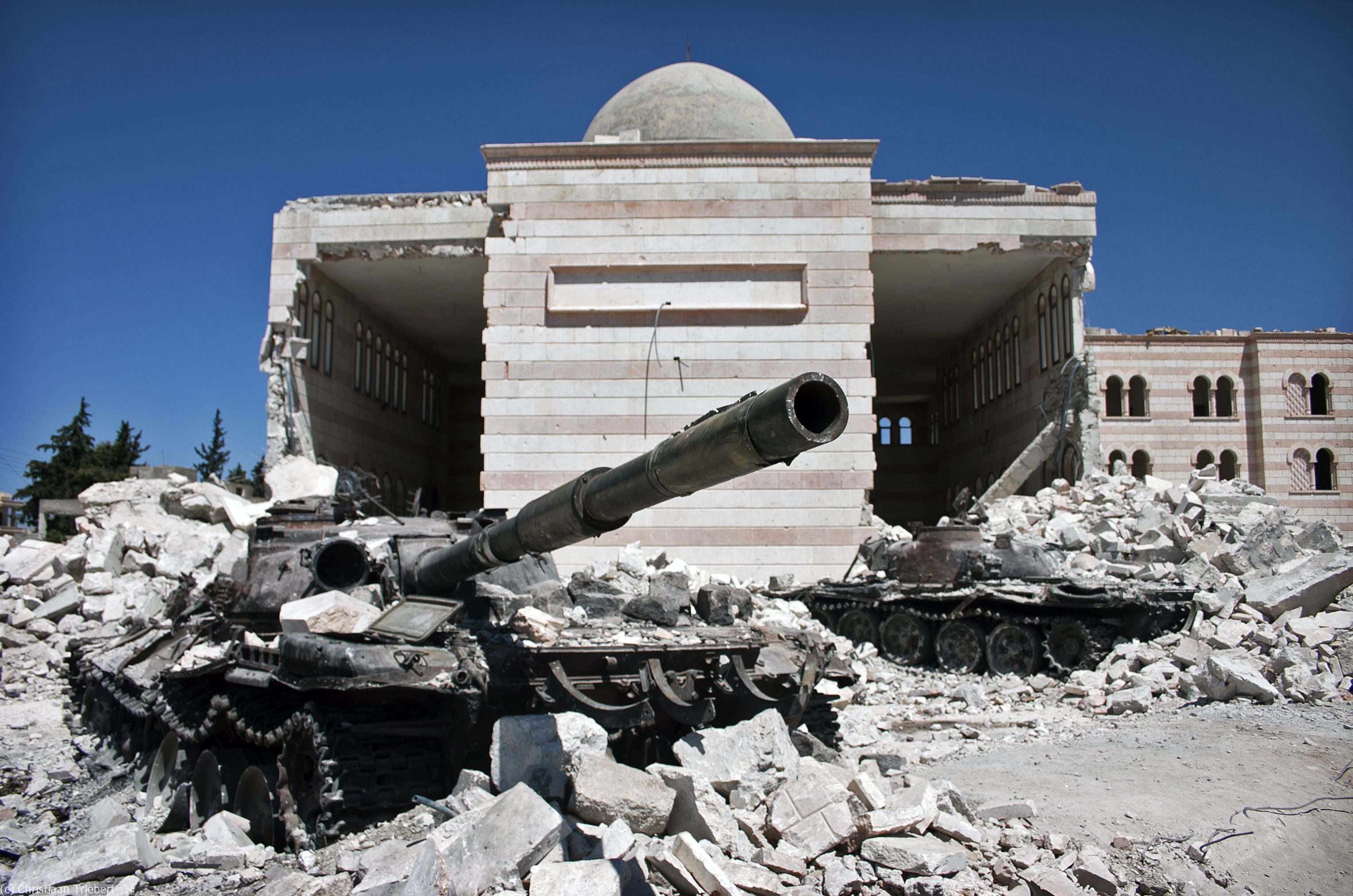
(Photo Credit: Ed Giles – AFP/Getty Images)
By: Patrick Wheat
On July 3, the Arab Spring took another sharp right turn when the Egyptian military removed President Mohammed Morsi from power. Following Mr. Morsi’s removal, the streets of Egypt took on a scene familiar to the Arab Spring Revolution in January 2011; mass protests and police presence became commonplace in most major cities. From Cairo to Alexandria, protestors fought against Morsi’s removal, despite rising pressure and tension from the interim government. This current political coalition is led by the Head of the Supreme Constitutional Court Adly Mansour, who assumed power after Mr. Morsi’s removal until a special election can be held later this year. As final negotiations between this entity and the Muslim Brotherhood (the political party that nominated Mr.Morsi as president and still holds a majority of seats in Parliament) tether on the verge of collapse, the concern that the country is heading towards a violent civil confrontation grows every day. Already, current reports from the Ministry of Health estimate over 60 dead and over 500 wounded over the past few weeks.
The “Battle for Egypt” is an unconventional one; it is being fought through the court of public opinion rather than on a traditional battle field between armies. The military’s original justification for the removal of Mr. Morsi was that the public supported their decision given the declining public approval for his policies. In response to Mr. Morsi’s removal, the Muslim Brotherhood organized mass protests to assert that the military was incorrect in their removal of their duly elected president. Now, in response to the Muslim Brotherhood’s protests, the military has encouraged citizens to also engage in mass protests to give support to the removal of Mr. Morsi and the instillation of Mr. Mansour in the name of “preserving the peace.” With the situation escalating and casualties mounting on both sides, it seems that without a change in thinking from the leaders of Egypt, the protests will only grow in size and scope and the government will grow more forceful in its attempts to suppress the demonstrations. This may result in an increase in military attempts to disperse the protests through violent means and general arrests of members of the Muslim Brotherhood.
Neither side has shown a willingness to step down from what it perceives as its moral standing. The current government believes that Mr. Morsi’s administration was working against the popular interests of the people of Egypt and deserved to be removed. Conversely, the Muslim Brotherhood believes that the removal of President Morsi was illegal, immoral and the only way for the country to move forward is for Morsi to be returned to office immediately. These contrasting viewpoints have made discussion between the two parties almost impossible to maintain, even with third parties acting as mediators. International attempts to broker a compromise between the two parties have been fruitless. Senators John McCain and Lindsey Graham went to Egypt last Tuesday with a plea to the Muslim Brotherhood to denounce the violence, calling it a necessary first step, but made no headway towards a peaceful resolution to the crisis.
This situation is rooted in the fact that President Mubarak’s government was removed from power through a combination of popular opinion and military force. Thus, the military has potentially set a dangerous precedent of overthrowing the government whenever there is some popular opposition. As a result, no mechanism exists within post-Mubarak Egypt for free and inclusive debate between different sides. The problem is further complicated by the fact that the Constitution of Egypt is again being revised by a panel of constitutional scholars to attempt to resolve some of the issues that the public had with the version that was cited as a major complaint by many citizens.
So, what is the next step for Egypt? The current crisis can conclude in several ways. One of the more probable outcomes is a continuation of the current stalemate between the government of Egypt and the Muslim Brotherhood until it becomes fiscally impossible for both sides to continue fighting. The protests have already made a mark on Egypt’s economy, despite the aid pledged by different states in the Gulf region. While this aid will help, ultimately the people of Egypt will be forced to address the soaring unemployment and poverty rates if they hope to raise their economic profile. Finding middle ground between both parties could be another possible outcome; this scenario would involve a new election and the creation of a new government. This outcome is unlikely to occur for another few months, but the strong stances of both sides make such an arrangement one of the few diplomatic paths out of the crisis. Finally, the least likely outcome is the current government taking strong action against the Muslim Brotherhood. Any action taken by the government would likely include forcing the protests to disband and taking military action against the Brotherhood itself. This is an unlikely outcome because the government is justifying its current actions by claiming that they have the will of the Egyptian people. By taking openly violent actions against the Brotherhood without the umbrella of necessity, they will damage their credibility and, as a result, make it more difficult for them to operate.
The mistake that many made when evaluating the Arab Spring was the belief that upon the fall of the totalitarian governments, fully formed democracies would be created without question or hesitancy. The current events in Egypt have reminded us that while many nations have taken steps towards democratic governments, they are still a long way from being stable democracies. While there is a large divide between the Muslim Brotherhood and the current government of Egypt, both sides have to take steps to talk with the other. Failure to do so will result in a damaged economy, a suffering populace and a failing prescience around the globe. However, should both sides be able to find the middle ground that exists between them, it might be possible for them to work together to build a future for their weary nation.

